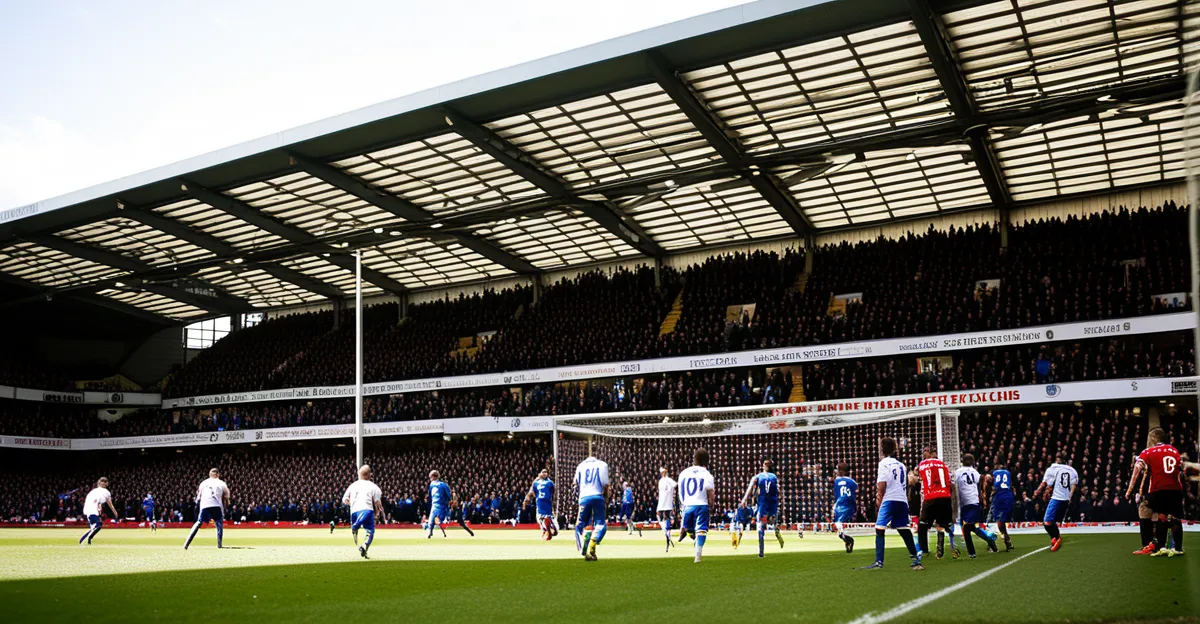Social Initiatives and Community Engagement
UK football clubs are at the forefront of community programmes that extend well beyond the pitch. These initiatives reflect a deep commitment to tackling social challenges and fostering stronger ties with local populations. Mental health support, educational outreach, and anti-racism campaigns frequently form the core of many clubs’ social impact efforts.
Addressing mental health, clubs organise awareness drives, workshops, and counselling services that provide practical help and reduce stigma. Education-based endeavours often involve mentoring schemes, literacy programmes, and scholarships targeting youth from disadvantaged backgrounds. Anti-racism is a prominent theme, with clubs leading campaigns to promote inclusion and challenge discrimination at every level of the sport and community.
Also to read : How Can UK Sports Inspire Positive Change in Society?
Flagship projects demonstrate how these programmes deliver measurable benefits. For example, several clubs have launched multi-year initiatives focusing on youth engagement combined with mental health support, showing notable improvements in participant wellbeing and school attendance. Others have established local anti-racism forums, producing educational resources adopted widely across schools and neighbourhoods. The scale and diversity of these efforts underscore the important role football clubs play in their communities, enhancing social cohesion and well-being.
Economic Contributions and Local Economies
UK football clubs exert a considerable economic impact on their local communities, underpinning job creation and stimulating various business sectors. Employment opportunities directly linked to clubs range from stadium staff and administrative roles to coaching and youth development positions. These roles contribute to sustainable livelihood options within the region.
Also to discover : How Can UK Sports Evolve in the Next Decade?
Beyond direct employment, matchdays generate significant revenue streams for local businesses in hospitality, retail, and tourism. Restaurants, pubs, and hotels experience increased patronage as fans gather before and after games, while local retailers benefit from higher footfall. This microeconomic activity highlights the crucial role football clubs play in enhancing local business viability.
Several clubs have fostered successful partnerships with local enterprises and councils, spearheading regeneration projects that revitalize neighbourhoods. These collaborations often include infrastructure improvements around stadiums, boosting accessibility and encouraging further investment. Such initiatives demonstrate football clubs’ capacity to drive regional economic development beyond their sporting activities.
Youth Development and Grassroots Support
UK football clubs play a pivotal role in youth engagement football, investing heavily in the development of young talent and fostering community participation in sport. Club youth academies provide structured training environments where aspiring players receive professional coaching, education, and personal development support. These academies serve as incubators for future professional athletes, while also encouraging life skills that benefit young people beyond the pitch.
Support for grassroots football UK extends beyond elite training. Many clubs collaborate with local schools, community centres, and recreational leagues to ensure broad access to football. This grassroots support not only nurtures a love for the game but also promotes physical health, teamwork, and social inclusion among youth from diverse backgrounds. By facilitating regular access to football facilities and coaching, clubs help remove barriers that might otherwise prevent participation.
Success stories from club youth academies highlight the tangible outcomes of these initiatives. Numerous professional players have progressed through these systems, reflecting both individual achievement and the clubs’ sustained commitment to nurturing local talent. Beyond producing professional athletes, these programmes boost community pride and contribute to the social fabric by offering structured, positive pathways for young people. Such investments demonstrate how UK football clubs intertwine competitive excellence with meaningful community impact.
Charity Work, Social Inclusion, and Accessibility
UK football clubs demonstrate a strong commitment to charity work, using their platforms to raise funds and awareness for various causes. Many clubs have established dedicated charitable foundations that organise fundraising events, community drives, and partnerships with local organisations. These efforts not only generate vital financial support but also foster an ethos of giving back within the club and fanbase.
Promoting club social inclusion is central to the mission of many football charity UK programmes. Clubs implement initiatives aimed at integrating marginalised and vulnerable groups, such as refugees, ethnic minorities, and those facing social isolation. Through tailored workshops, sports clinics, and mentorship schemes, they help participants build confidence, skills, and social networks. This focus on inclusivity reflects football’s power as a unifying force in diverse communities.
Improving football and accessibility within stadiums and club facilities is another priority. Clubs invest in infrastructure upgrades to enhance access for fans with disabilities, including wheelchair-friendly seating, sensory rooms, and accessible transport options. They also provide specialised services such as sign language interpreters and quiet spaces during matchdays. Such initiatives ensure that the football experience is welcoming and engaging for all supporters, regardless of physical ability.
These programmes illustrate how UK football clubs leverage their influence beyond sport to create lasting social impact, reinforcing community bonds and promoting equality.
Fan Culture and Identity
UK football fan culture is a powerful force that shapes local identity and fosters community pride. Clubs serve as cultural cornerstones, linking generations through shared traditions, chants, and rituals that strengthen the bond between supporters and their towns or cities. This football and local identity connection often extends beyond the stadium, embedding clubs deeply within the social fabric.
Supporter initiatives further illustrate this relationship. Fan-led projects commonly focus on community betterment, ranging from charity drives and environmental campaigns to preserving local heritage sites connected to club history. These efforts enhance the positive social impact of football clubs, demonstrating how fans actively contribute to their communities.
Club traditions and matchday experiences are central to cultural cohesion. Whether through longstanding pre-match routines or celebrating historic milestones, these shared experiences cultivate a unique sense of belonging. The engagement nurtured by UK football fan culture promotes solidarity, helping diverse populations unite under a common passion for their club and locality.







